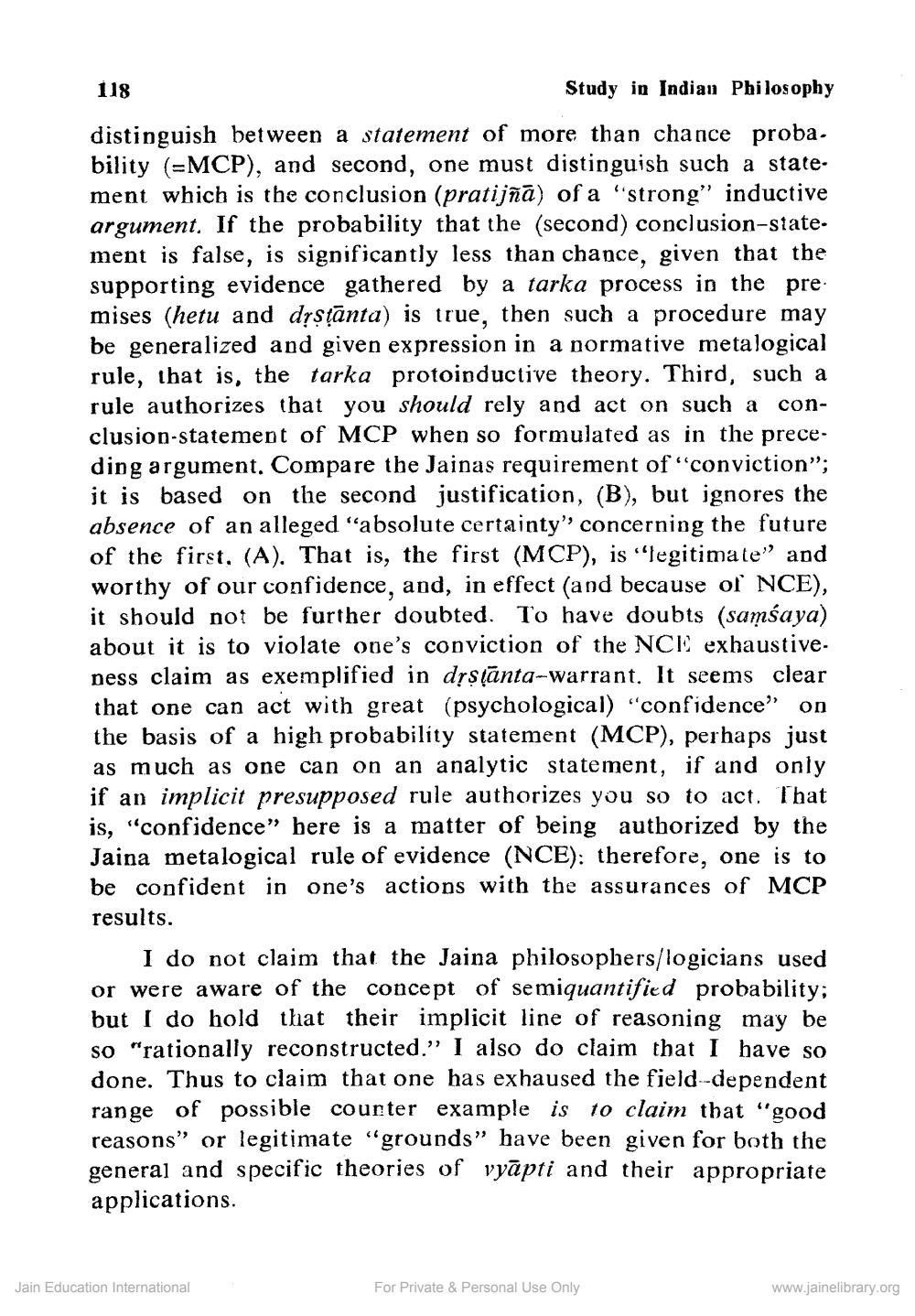________________
118
Study in Indian Philosophy
distinguish between a statement of more than chance proba. bility (EMCP), and second, one must distinguish such a state. ment which is the conclusion (pratijñā) of a "strong" inductive argument. If the probability that the (second) conclusion-state. ment is false, is significantly less than chance, given that the supporting evidence gathered by a tarka process in the premises (hetu and dụsţānta) is true, then such a procedure may be generalized and given expression in a normative metalogical rule, that is, the tarka protoinductive theory. Third, such a rule authorizes that you should rely and act on such a conclusion-statement of MCP when so formulated as in the preceding argument. Compare the Jainas requirement of “conviction"; it is based on the second justification, (B), but ignores the absence of an alleged "absolute certainty' concerning the future of the first, (A). That is, the first (MCP), is "egitimate” and worthy of our confidence, and, in effect (and because of NCE), it should not be further doubted. To have doubts (samsaya) about it is to violate one's conviction of the NCE exhaustiveness claim as exemplified in dựslānta-warrant. It seems clear that one can act with great (psychological) "confidence” on the basis of a high probability statement (MCP), perhaps just as much as one can on an analytic statement, if and only if an implicit presupposed rule authorizes you so to act. That is, confidence” here is a matter of being authorized by the Jaina metalogical rule of evidence (NCE): therefore, one is to be confident in one's actions with the assurances of MCP results.
I do not claim that the Jaina philosophers/logicians used or were aware of the concept of semiquantified probability; but I do hold that their implicit line of reasoning may be so "rationally reconstructed.” I also do claim that I have so done. Thus to claim that one has exhaused the field-dependent range of possible counter example is to claim that "good reasons” or legitimate “grounds” have been given for both the general and specific theories of vyāpti and their appropriate applications.
Jain Education International
For Private & Personal Use Only
www.jainelibrary.org




